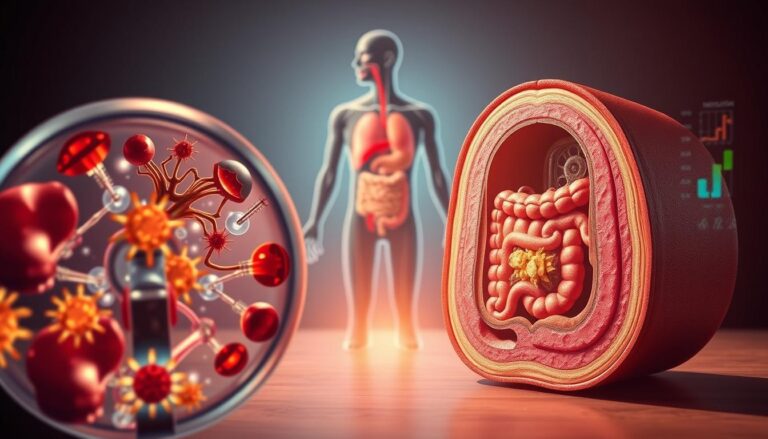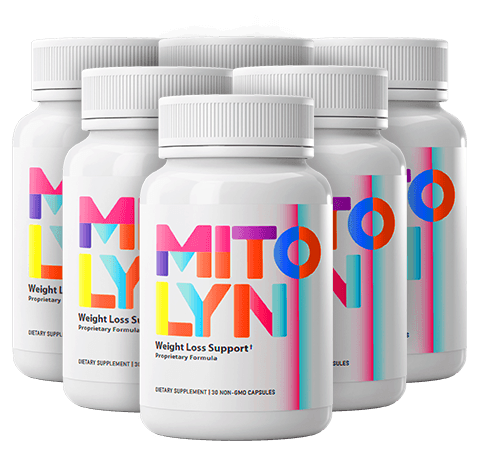Ever wondered why metabolism slows down after 30? It’s because our metabolism naturally slows as we age. This can lead to weight gain and health issues. But, the good news is we can boost our metabolism naturally with the right lifestyle changes.
Things like sleep quality, stress levels, and what we eat affect our metabolism. By changing our lifestyle habits, we can control our metabolic health. This helps avoid weight gain and other health problems. So, how can we supercharge our metabolism and stay healthy?
Key Takeaways
- Metabolism slows down naturally after 30 due to a combination of factors affecting metabolism
- Boosting metabolism naturally requires a holistic approach that includes diet, exercise, and sleep habits
- Understanding why metabolism slows down after 30 is crucial to making informed decisions about our lifestyle habits
- Factors such as sleep quality, stress levels, and dietary habits all play a role in our metabolic rate
- By making conscious choices about our lifestyle habits, we can take control of our metabolic health and reduce the risk of weight gain and other health problems
- Regular exercise, quality sleep, and a balanced diet are essential for maintaining a healthy metabolism
- Why metabolism slows down after 30 is a complex question, but by addressing the underlying factors, we can supercharge our metabolism and improve our overall health
Understanding Why Metabolism Slows Down After 30
As we get older, our bodies change in many ways. One big change is our metabolism slowing down. This can cause weight gain and health problems. Our metabolic rate drops about 2 percent or more each decade after 25.
This drop is due to natural aging and hormonal changes. It’s important to know how lifestyle affects our metabolism. Eating right and exercising can slow down this decline. Foods high in protein and fiber help us stay full and support our metabolism.
Regular exercise, like walking or strength training, builds muscle. This increases our resting metabolic rate.
- Less muscle mass means fewer calories burned at rest
- Hormonal changes, like lower estrogen, slow metabolism during menopause
- Less physical activity leads to weight gain and a slower metabolism
Knowing these factors helps us make better lifestyle choices. We can support our metabolic health and avoid weight gain and health issues.
The Role of Muscle Mass in Metabolic Rate
Muscle mass is key to our metabolic rate. More muscle means a higher rate. This is because muscle burns more energy than fat. Exercise for metabolism boost helps build and keep muscle. You can do this with strength training and high-intensity interval training.
Many think metabolism slows down with age. While it’s true, it’s not just age. Losing muscle with age is a big factor. Exercise helps keep muscle, boosting metabolism and fighting aging.

Important facts about muscle and metabolism include:
* Muscle mass greatly affects basal metabolic rate (BMR)
* People with more muscle burn more calories at rest
* Men usually have less body fat and more muscle than women of the same age and weight
* Aging leads to muscle loss, making us burn fewer calories
Understanding muscle’s role in metabolism is crucial. Adding exercise for metabolism boost to our day helps fight aging. It’s also important to know the truth about metabolism myths.
Hidden Factors Affecting Your Metabolism
When we talk about preventing metabolic decline, we usually think of diet and exercise. But, other factors also play a big role in our metabolism and weight management. Knowing about these hidden factors is key to keeping our metabolism healthy.
Sleep quality, stress levels, and our environment can all affect our metabolism. For example, not getting enough sleep can mess with hormone balances, slowing down our metabolism. Also, too much stress can raise cortisol levels, causing us to store more fat and slow down our metabolic rate.
Sleep Quality and Metabolic Function
It’s important to aim for 7-9 hours of good sleep each night to support metabolic health. Bad sleep can cause hormone problems and make us want unhealthy foods more.

Stress and Its Impact on Metabolism
Long-term stress can really hurt our metabolism and weight management. It’s important to find healthy ways to deal with stress, like exercise or meditation, to keep our metabolic rate healthy.
By understanding how these hidden factors affect our metabolism, we can take steps to lessen their impact. This means focusing on good sleep, managing stress, and being aware of our surroundings.
Common Myths About Metabolism After 30
As we get older, our bodies change in many ways. These changes can affect how we metabolize food. One myth is that our metabolism stays the same forever. But, studies show it peaks at age 1 and then drops about 3% each year until we’re 20.
Another myth is that men and women have very different metabolisms. It’s true that men usually have a faster metabolism because of more muscle. But, the difference isn’t as big as many think. Things like muscle, body shape, and how active we are also play big roles. 
Here are some important things to know about metabolism after 30:
- Genetics
- Age
- Body composition
- Gender
- Weight
- Height
- Diet
Knowing these factors helps us manage our metabolism better. By clearing up myths and understanding what affects our rate, we can take charge of our health. We can make smart choices about our lifestyle and what we eat.
Essential Nutrients That Power Your Metabolism
As we get older, what we eat and our metabolism in our 30s matter a lot. Eating foods that boost our metabolism helps us stay healthy. A diet full of important nutrients is key to keeping our metabolism strong.
Eating a mix of whole foods like fruits, veggies, whole grains, lean proteins, and healthy fats is best. Protein is especially important. It helps build and fix muscles, which is good for our metabolism.

Other important nutrients for our metabolism are vitamins and minerals. They help make energy, work our nerves, and grow our body. Drinking enough water is also important. It helps keep our body cool, moves nutrients, and gets rid of waste.
Some nutrients we should pay attention to are:
- Vitamin D, which is key for strong bones and a healthy immune system
- Iron, which is needed for healthy red blood cells
- Magnesium, which helps make energy and work our nerves
By eating these nutrients and living a healthy life, we can keep our metabolism strong as we age.
Strategic Eating Patterns to Boost Metabolism
To fight the natural slowdown of metabolism after 30, adopting certain lifestyle tips is key. One good way is to focus on eating patterns. Eating regular meals and snacks helps avoid big swings in hunger and fullness. These swings can hurt your metabolism.
Eating protein-rich foods is another smart move. It can make your metabolism 15% to 30% faster. Drinking water also boosts your resting metabolism by 24% for an hour. Adding foods like peppers, which burn 10 extra calories per meal, is also helpful.
Here are some tips for better eating habits:
- Eat regular meals and snacks to prevent extreme swings in fullness and hunger
- Include protein-rich foods in your diet to increase overall metabolic rate
- Drink plenty of water to increase resting metabolism
- Incorporate metabolism-boosting foods, such as peppers, into your diet

By following these eating tips and lifestyle changes, you can boost your metabolism. This helps keep your weight healthy. Always talk to a healthcare expert before changing your diet or exercise routine.
Exercise Strategies That Revv Up Your Metabolic Engine
Regular exercise is key for a healthy metabolism. It burns calories and builds muscle, which helps with weight management. There are many ways to boost your metabolism through exercise.
High-intensity interval training (HIIT) is very effective. It involves short, intense workouts followed by rest. HIIT can keep your metabolism high for up to 14 hours after. Strength training also boosts metabolism by building muscle.
Here are some tips to add exercise to your day:
- Start with short HIIT sessions, 2-3 times a week
- Add strength training to build muscle
- Try to do at least 150 minutes of moderate exercise weekly
Being consistent with exercise is crucial. Make it a daily habit. Combine it with a healthy diet and lifestyle for the best results. By focusing on metabolism and weight management, you can reach your weight loss goals.
| Exercise Type | Frequency | Duration |
|---|---|---|
| HIIT | 2-3 times a week | 20-30 minutes |
| Strength Training | 2-3 times a week | 30-45 minutes |
Lifestyle Habits That Support Healthy Metabolism
Changing our lifestyle for metabolism can really help our health. Getting enough sleep is key. Studies show that sleeping only 4 hours a night for 5 nights lowers our metabolism by 2.6%.
Less stress also helps our metabolism. Too much stress can make us store more fat and slow down our metabolism.
To start these habits, try sleeping 7-8 hours each night. Also, do stress-reducing activities like meditation or yoga. Taking breaks during the day helps too.
Adding physical activity, like walking or strength training, also boosts metabolism.

By making these simple lifestyle changes for metabolism, we support our health. Remember, small steps can make a big difference over time. Stay consistent and patient. With the right habits, we can keep our metabolism healthy and enjoy its benefits.
Warning Signs of Metabolic Slowdown
As we get older, our metabolism changes a lot. Metabolism changes with age and can affect our health. After 30, many factors affecting metabolism after 30 slow it down. This can make us feel tired, moody, and hard to lose weight.
It’s important to know the signs of a slow metabolism. This way, we can stay healthy and keep our metabolism going strong.
A slow metabolism can harm our health a lot. Look out for these signs:
- Unexplained weight gain
- Loss of muscle mass
- Decreased energy levels
- Difficulty sleeping
If you notice these signs, see a doctor right away. They can check for health problems and help you fix your metabolism.

Knowing the signs of a slow metabolism helps us stay healthy. A good metabolism is key to feeling well. So, if you’re worried, don’t wait to get help.
Natural Supplements and Their Impact on Metabolism
As we get older, our metabolism slows down, especially after 30. Natural supplements can help keep our metabolism healthy. For example, green tea extract can boost metabolism after 30. It’s important to pick supplements that fit into our daily life.
Some natural supplements that may help support metabolism include:
- Green tea extract
- Ginseng
- Conjugated linoleic acid (CLA)
Remember, supplements are just a part of the solution. A healthy diet and exercise are key. By using natural supplements and living a balanced life, we can keep our metabolism strong.

Always talk to a doctor before starting new supplements. This is especially true if you have health issues.
| Supplement | Potential Benefits |
|---|---|
| Green tea extract | May help boost metabolism and support weight loss |
| Ginseng | May help improve energy levels and reduce inflammation |
| Conjugated linoleic acid (CLA) | May help support weight loss and improve body composition |
Creating Your Personal Metabolism-Boosting Plan
To reach your health goals, making a personal plan is key. This plan should fit your needs and lifestyle. It should include metabolism-boosting foods and exercise for metabolism boost. A good plan helps you set goals, track your progress, and make lasting changes.
When making your plan, think about these important points:
- Add metabolism-boosting foods like lean proteins and whole grains to your diet.
- Start an exercise for metabolism boost routine with resistance training and high-intensity interval training.
- Keep an eye on your progress and tweak your plan if needed.
A great metabolism-boosting plan is made just for you. By eating metabolism-boosting foods and doing exercise for metabolism boost, you can hit your health targets and keep your metabolism healthy.

Stick to your plan, and you’ll be on your way to a healthier, more energetic life.
| Metabolism-Boosting Tips | Benefits |
|---|---|
| Incorporate lean proteins into your diet | Supports muscle growth and repair |
| Engage in regular resistance training | Builds muscle mass and boosts metabolism |
| Get enough sleep each night | Supports overall health and metabolism |
Conclusion: Taking Control of Your Metabolic Health After 30
Our metabolism changes a lot as we get older, often slowing down after 30. But, we can take steps to boost our metabolism and stay healthy. By knowing what affects our metabolism and making lifestyle changes, we can why metabolism slows down after 30 and control it again.
There are many ways to why metabolism slows down after 30. Eating more protein and doing strength exercises help. So does managing stress and getting better sleep. By doing these things regularly, we can fight the natural slowdown in metabolism. This keeps us energetic, helps us manage our weight, and keeps us feeling good.
Our metabolic health can change and adapt. With the right mindset and plan, we can reach our metabolic potential and do well beyond 30. Start the journey, stick to your wellness goals, and let your metabolism reach new levels.













